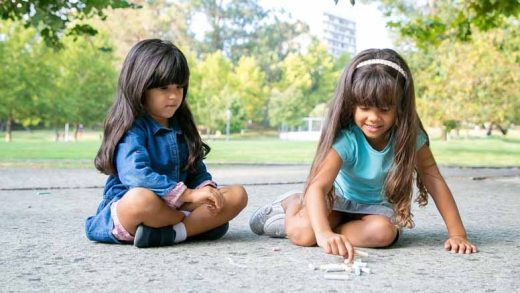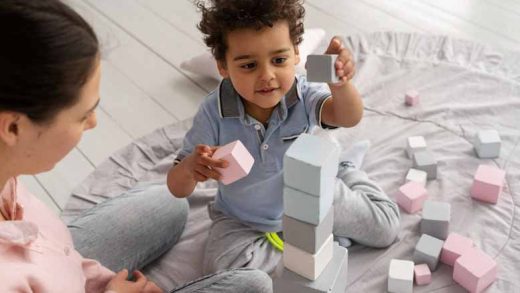Planning skills help us identify and manage responsibilities in the future. It entails recognizing future activities and events, defining goals for completing them, and examining the procedures required to achieve the task ahead of schedule.
Practical planning abilities provide us with a sense of control and help us execute projects more swiftly and efficiently. When we plan well, jobs run smoothly, giving us extra time for enjoyment and relaxation. Similarly, when we don’t have a plan, frustrations mount, jobs take longer, and they may be completed wrong.
What are Some Planning skills to Teach your Children?
After you’ve completed an assessment of your child’s executive functioning skills, keep in mind that planning skills may fluctuate depending on their age, skill level, and previous experience with independent planning. Know how to improve your planning skills because these skills define a progression of executive functioning activities, ranging from beginning to advanced. Concentrate on finding areas where your child requires assistance right now, then gradually progress to harder executive functioning goals.
How to Tell What’s Important From What Are Just Details?
Some adults and teenagers with special learning challenges become mired in the minutiae of preparation and overlook the “big picture” or core concept. You might need to prioritise improving your communication abilities in order to distinguish between why planning skills are important and the main idea before starting to concentrate on executive skills like planning. Talk about the basic ideas of well-known films, video games, and books before moving on to the primary idea vs. specifics of daily activities that are scheduled.
The Use of Checklists
The benefits of using checklists are mentioned in hundreds of different sources. People from all areas of life find benefit in making a list of activities and visually checking them off when finished, from the US military to Fortune 500 company success. Although it may seem like a straightforward idea, many people with special learning challenges find it difficult to independently construct and utilise checklists. Start by using the steps of well-known tasks to practise using a checklist. After that, advance to employing a set of steps with additional accountability. When your child is able to complete a step on their own, proceed to the next one and have them begin working on making checklists.
How To Organise Easy Tasks?
It can be necessary to know how to teach planning skills to your students and how to sequence the phases of basic activities before utilising the following checklists. Teaching planning skills can be difficult if the student finds it difficult to prioritise tasks. Ask your youngster to sequence the steps of commonplace tasks (such as washing a car, cooking a favourite dish, or placing an order at the drive-through) by writing them down or using visual cue cards. When assigning stages, have your learner concentrate on elucidating and comprehending the cause-and-effect link. If students can also explain why steps should be taken in a particular order, it can help them grasp planning skills.
Tips For Using A Calendar Or Planner
Introduce the concepts of time and pre-planning activities once a kid can demonstrate task sequence and follow a checklist to finish stages in order. Many adults and teenagers find that it is better to begin with a daily schedule, breaking down the activities into manageable chunks rather than throwing them into a task overload that will take many days or weeks to complete.
Recall that there is no one-size-fits-all calendar/planner system, which is why we have created hundreds of different versions. Take note of how your learner uses a calendar as a tool to keep on task throughout the course of many days of observation. Does using a mobile device for it make sense? Pencil and paper? Is it useful to share updates, modifications, and reminders by syncing with your own calendar? Select a planner or calendar that will assist your student to achieve rather than just the one you enjoy.
How to Set Reminders?
Start teaching the use of reminders as a planning tool as soon as your student has mastered following instructions and utilising a calendar or planner. By using a strategically placed note or setting smartphone reminders, you may help your adolescent or young adult become more organised. When they say that a reminder was useful, give them encouragement to try a few new approaches and show them your support and appreciation. Rather than punishing your learner for missing why planning skills are important assignments or deadlines, use it as a chance to reinforce reminders.
Using Visual Diagrams, Drawings, and Maps
It is now a good idea to have your students work on planning jobs without distinct phases as they have gained more experience with planning concrete, well-defined activities. Making visuals, such as mind maps, drawings, and diagrams, has been demonstrated to be one tactic to improve executive functioning. These illustrations can aid in bringing unclear or less structured actions into order. They can also be useful when deciding which chores to prioritise or when making plans for the future.
How to Apply the “Next Best Step” Approach?
Some students’ planning skills fail to break down when tasks are identified. It’s in setting priorities. In this situation, give a lot of attention to objectives and techniques that assist your youngster in determining what is planning skills & most crucial right now or the best course of action. Try brain dumping, when your youngster makes a list of every step involved in a task, ranks them, and chooses the most crucial or subsequent step.
Surround Yourself With Support
Increasing executive functioning skills in certain teenagers and young adults calls for an “all hands on deck” strategy. Think about who else might be able to support you and your child if you’ve tried some of the above tactics or if you’re worried that you might not have the support needed to improve planning skills. An expert mental health professional or your child’s medical care team can help you make well-informed decisions. It’s possible that other care coordination team members are already honing their planning techniques, which could support your efforts even more. Contact Kangaroo Kids International Preschool for support.
Make sure to set an example of good behaviour by modelling strong executive functioning skills, such as planning, for your child. Showcase the benefits of employing checklists and reminders, as well as keeping a well-organised calendar. Talk to your child regularly about “next steps” and how to improve your planning skills. Your child can observe the application of planning skills as they grow more self-reliant by giving them examples from everyday life.









